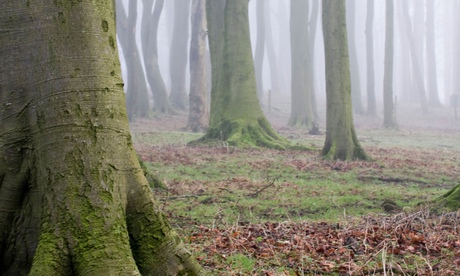
You might think Bright Travellers a fey title, but not once you have encountered the poem from which it has been parted. It describes a baby's intent, unfathomable way of looking at the world:
She stares
over my left shoulder
into blank corners
and seems to watch
who knows what
bright travellers.
Visitations is a poem of moving severity that remarks that a baby is neither "passenger" nor "plaything". If there is a defining quality to Fiona Benson's hugely impressive debut, it is that she does not fine-tune the world to suit herself or to hew poems out of it. She witnesses – and, more intimately, suffers – life's surprises, disappointments and accidents. She does not edit to see, she just lets the poems come. It seems fitting that the last line of Visitations is: "Leave us be." Of her bright travellers, several fail to complete their journeys. Her poems about miscarriages are the work of a brave memorialist.
Her eye is often held by the not obviously beauteous. Caveat describes an unpromising cactus that releases itself, like a rescuing clause – a caveat – into a final blossoming line:
And, once a lifetime,
when the slant rain falls
there is this halo of flowers.
The forest floor in Submerged Forest is at its worst and yet she pays this sodden landscape the compliment of attention:
… dank eroded beds
of peat-stained oak, pocked
with vanished colonies of whelk
and half way troughed in sand.
In the same poem, I enjoyed the daring, off-hand verb for an owl on patrol: "still sharking in the treetops/circling its flooded roost". She sees meticulous abstracts in nature and is especially receptive to patterns of light. Sometimes, she gravitates towards underused vocabulary (antiphon, sintered, haar) but such words are unostentatiously employed. She has the modest exactitude of a true poet.
She is fearless too. It takes someone plucky to offer a sequence on Van Gogh and include two poems about sunflowers (she argues their yellow light has "candour"). Writing as Van Gogh's lover is a further gamble but in a particularly alluring poem, Pear Tree in Blossom, she describes Van Gogh's "mania for orchards" and takes the flowering pear tree as a temporary augury:
… Here is your poirier blanc
its blossom shining in the dark yard;
here, whatever sorrow waits for us, is hope.
Her admirable endings seem inevitable without being attention-seeking – like necessary chords.
One of the attractive things about the collection is the way personal poems (about family) and more impersonal poems (about landscape) sit together so well and sometimes merge. In Poem for James (to her husband), what is especially charming is that she claims he has forgotten the scene she records. She places him as a figure in a landscape:
…But there you were, waist-deep in saffron,
your long arms folded and every hair on them
glowing like bronze, your red hair on fire
and your dark eyes attentive, though you don't remember,
which is why I'm writing it down, from the goldenrod in bloom
to your nimbus of insects lit by the sun.
The final poem, Daughter Song, does this too. Nature again plays its part, no better behaved than hitherto, even allowing a drowned fox to float to the surface. It is one of the collection's most beautiful pieces and this is partly because Benson lets herself go more than she has done before. It runs on – a free and enraptured ballad, at once elegiac and forward-looking. And the absence of punctuation and especially of a final full stop is fitting to its love-without-end subject.

